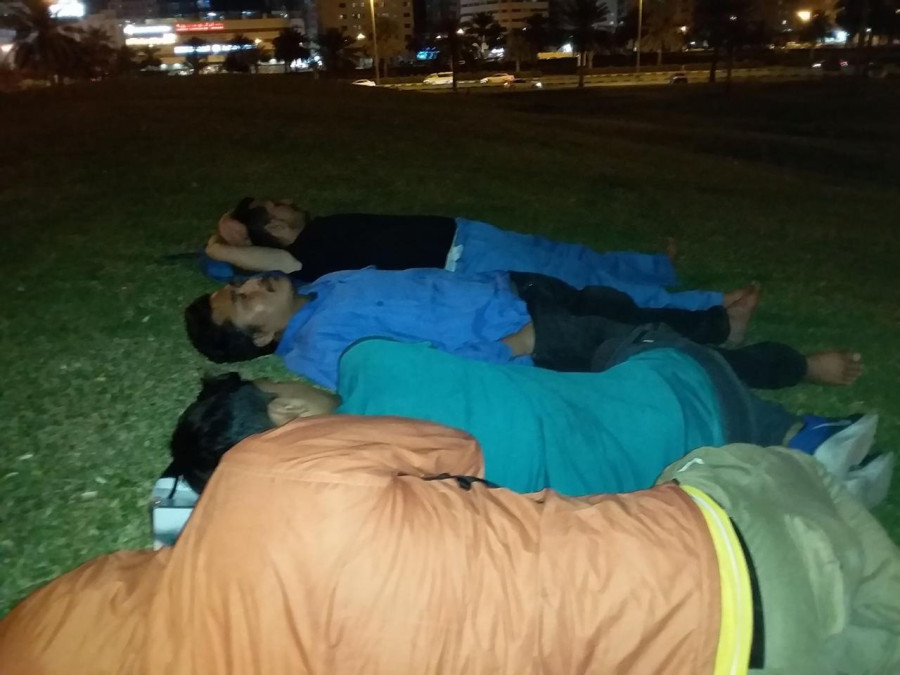Editorial
Bring them home now
Nepalis are languishing abroad while the government dawdles.
It is baffling to witness the lack of empathy and respect the Nepal government has shown towards Nepalis trapped abroad. Even as the current lockdown continues to squeeze Nepalis at home—what with most of the economy, informal or otherwise, seeing a sharp downturn—Nepalis abroad face greater challenges. They are away from home, many without a source of income and with families relying on them back in Nepal, as the global economy shutters for the moment. Some have not only lost their jobs but have also been evicted from their accommodations. And yet, through all this turmoil, the Nepal government continues to refuse to take these Nepalis back.
As Nepal enters the fourth week of its lockdown, it can no longer claim that it needs more time to figure out how to bring back its citizens stuck abroad. It cannot continue to make excuses about the lack of quarantine facilities or the need for more planning. If the government is indeed still under-prepared to address the pleas of the stranded Nepalis, it needs to be held accountable for the weeks that have been wasted.
Migrant workers are known to suffer even in the best of times. The near half million Nepalis exploited—some to their deaths—in Qatar, as exposed by The Guardian in 2013, was only the tip of the iceberg. Research by Amnesty International in 2017 confirmed what the people of Nepal had known all along: The government itself had failed its out-migrants, and manpower agencies in Nepal itself began the ‘cycle of debt and deception’ which dragged down the workers into further and perpetual misery. However, with the countries playing host to migrant workers waging an uphill battle against Covid-19 and witnessing major economic downturns, the workers have begun to face unprecedented challenges.
In Romania, around 500 Nepalis have been forced to either stay home without pay, or take salary cuts. In Malaysia, usually a haven, comparatively, for migrant workers, Nepalis were being forced to work through a lockdown to earn their livelihood—at great risk to each other, as out-migrants often share cramped quarters. Qatar did not take any chances, and immediately deported all Nepali workers that it thought were endangering public health. Thousands of Nepalis continue to suffer right across the Nepal-India border, having been barred from entering the country after travelling hundreds, if not thousands, of kilometres on foot to get home after India’s lockdown was announced. The Post in this space has earlier also reminded the government of its duty to allow these migrants to cross the border, having set a precedent by rescuing 175 Nepalis from Hubei province in China.
Now, to add to the grisly list, it has come to light that nearly 40 Nepalis have been brought to the streets of Sharjah in the United Arab Emirates—without much food, shelter for a limited time and having been cheated of fair wages. For most of these migrant workers, the exploitation and bias they have faced abroad comes secondary to the helplessness they feel at the government’s refusal to allow them to return home. But it is the duty of the federal government to repatriate such Nepalis stuck abroad. Article 45 of the constitution ‘guarantees that citizens will not be exiled’, which surely the current situation counts as.
If the current government lacks the humanity to understand the current scenario, and even if it lacks the empathy to feel its citizens’ plight, it surely cannot ignore the legal ramifications of essentially exiling its citizens en masse. Nepali migrant workers also contributed $8.1 billion to the national income in 2018, something the government needs to keep in mind, should it think to continue discounting out-migrants. If the administration does not do right by the millions of migrant workers stuck abroad now, it may also face a different voting environment in the next election cycle.




 18.12°C Kathmandu
18.12°C Kathmandu














